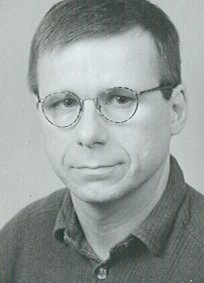Ruud Luijkx, born in Utrecht, the Netherlands, in 1958. Ph.D. from Tilburg University. Assistant Professor of Research Methodology of the Social Sciences at Tilburg University.
Fellow (1 September 1996 – 30 June 1997)
During my NIAS year, I undertook research in the context of the nucleus “Stratification in Eastern and Western Europe in the 1990s”. Important progress has been made.
With Thomas DiPrete, Paul de Graaf, Michael Tåhlin, and H.P. Blossfeld, the paper “Collectivist vs. Individualist mobility regimes? Structural change and job mobility in four countries” was completed. This paper will appear in the American Journal of Sociology in September 1997. In this paper, we came to the conclusion that the connection between individual mobility and structural change on the labour market is the strongest in the U.S.A., followed by Sweden, while in Germany and the Netherlands this association was the weakest. The interesting finding is the difference between the Western-European welfare states. As a consequence of a different social security system, both employment exit and job mobility are in Sweden more a consequence of the contraction in occupational groups and industries than in Germany or the Netherlands.
Extensive data preparation has been completed on the Hungarian mobility surveys from 1973, 1983, and 1992. Using these data, a paper was written on family background, educational attainment, and labour force entry of Hungarian men and women in this century (with Peter Róbert, Paul de Graaf, and Harry Ganzeboom). This paper addresses the effects of economic and political change in Hungary between 1910 and 1992 on social mobility. We distinguished six periods: the Depression (1910-1933), the period around World War II (1934-1948), The Long Fifties (1949-1967), the period of Reform Socialism (1968-1982), the Decline of Socialism (1983-1989), and the Transformation period (1990-1992). Linear, secular trends in the effects of family background and schooling predominate if social mobility is investigated using the status attainment approach, and for both men and women there has been a clear trend from ascription to achievement. Differences between historical and political distinct periods are more pronounced if the class approach is applied. Noteworthy is our finding that the advantage of a service class background decreased already before the communist take-over and that after 1949 it stabilised. Moreover, the advantage of having a father in the service class has even increased again from the beginning of the 1970s.
A second ‘Hungarian’ paper is on the (dependent) life histories of husbands and wives (with Péter Róbert and E. Bukodi). This paper deals with the labour force exit and re-entry of wives’ as related to childbirth as well as with the interdependency of husbands’ and wives’ occupational mobility.
Further, I contributed to Wout Ultee’s project on Jewish-Gentile intermarriage and Jewish suicides
